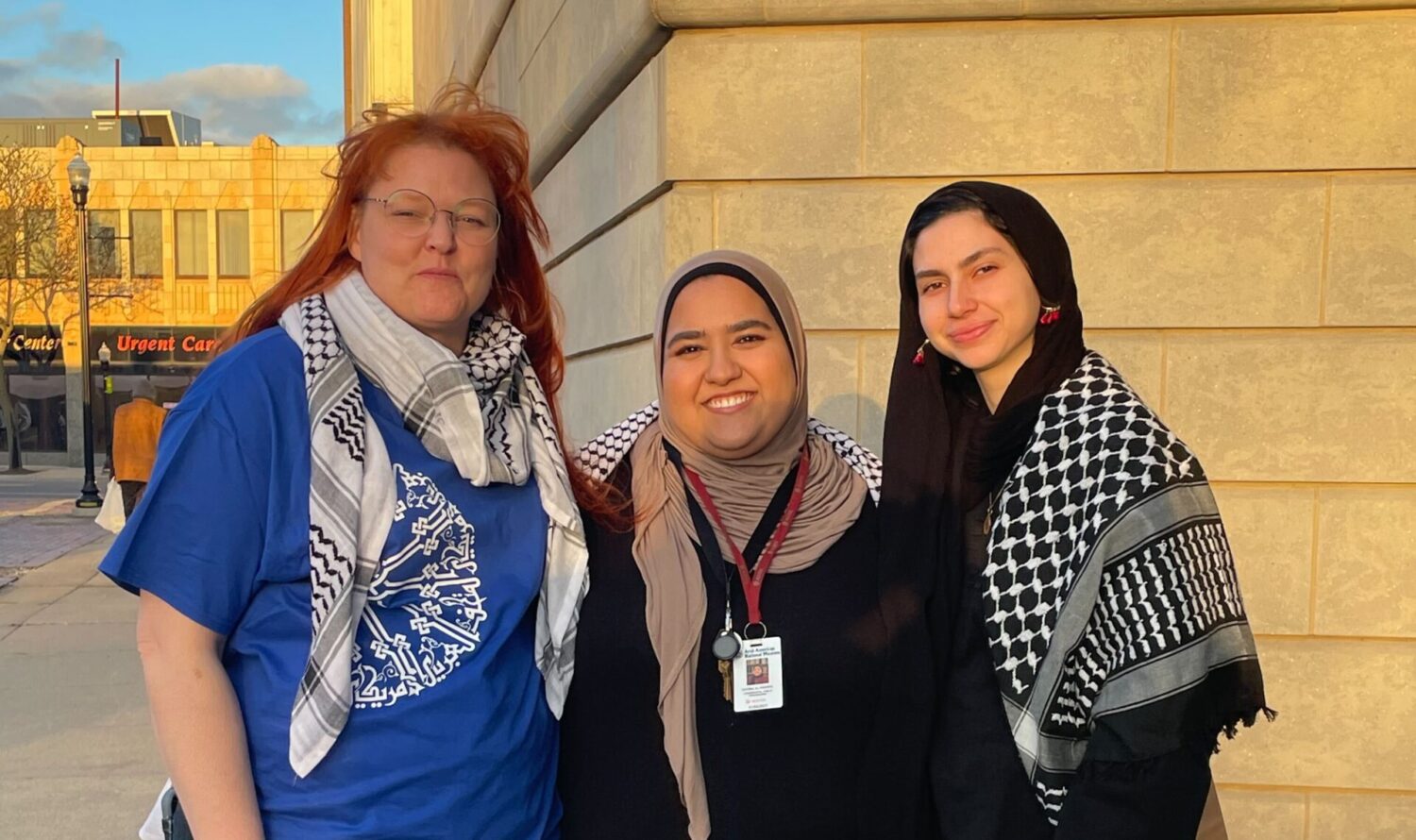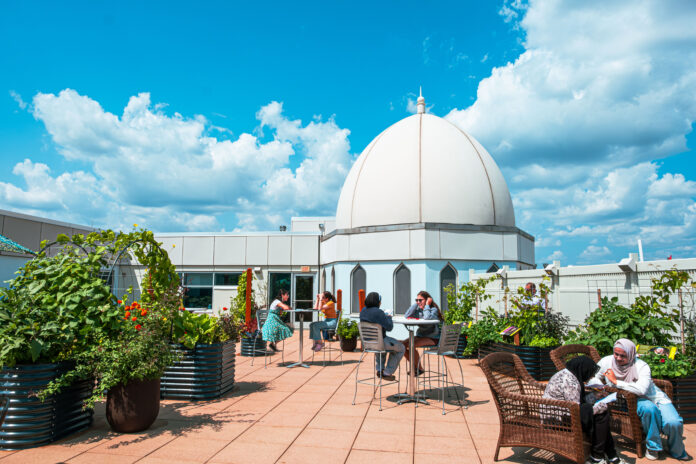I recently attended a seed-swapping event that coincided with the first half of the holy month of Ramadan. It was hosted by Al-Hadiqa, a community rooftop garden at the Arab American National Museum (AANM) in collaboration with MetroSwaps, a Muslim-led non-profit. MetroSwaps prioritizes building community ties within Dearborn and Detroit through sustainability workshops ranging from tackling fast fashion via clothing swaps and addressing community mental health via art therapy workshops.
Metro-Detroit encompasses the city of Detroit and Wayne, Oakland and Macomb counties. This land, known as Waawiiyaatanong, is the ancestral land of the Anishinaabe, Council of Three Fires, the Ojibwa, Odawa, Potawatomi and the land of the Wyandot nation. During the seed-swapping event, I was inspired to think about this land we call home and the pre-existing relationships the Indigenous people had and continue to have with this land before we arrived here.
Seed Sustainability Puts Amanah in Action
Afeefeh S., a co-founder of MetroSwaps, is a Lebanese American woman who has been dedicating her time to propagating the importance of sustainability within her community in Dearborn and connecting with the diverse communities within Detroit. Implementing Islamic principles of Amanah, or stewardship, of the land, the event attracted local gardening enthusiasts and hobbyists, offering activity tables where participants could paint rocks or planters.
The guidelines for the overall event were simple: attendees were asked to bring vegetable seeds, fruit seeds, or mushroom spores, avoid GMO varieties and ensure seeds were properly labelled. Among the participants at the event were the Iraqi Seed Collective, committed to preserving Iraqi culture and safeguarding the genetic heritage of crops through heirloom seeds, and Dearborn Public Library’s Seed Library.

In Michigan, the Seed Library Network exists to map out the Seed Libraries in the state. Seed-saving, integral to Food Sovereignty, is the process of saving seeds from one harvest for future harvest. This allows the farmer seed sovereignty, or the right to save, use, exchange and sell his or her own seeds. This practice has been done historically by Black and Indigenous people in the U.S. persevering their heritages.
Read More: Seeds of Resilience in Palestinian Agriculture
Al-Hadiqa is committed to continuing the stories behind the seeds gifted by local community members by archiving their stories in an oral history project. Established in 2023 and aimed to embody the Arab American experience, Al-Hadiqa collaborated closely with the East Dearborn community and Garden Juju Collective to craft the garden’s design and narrative tales. Fatima Al-Rasool, Public Programming Coordinator at AANM, notes that many of the residents have brought seeds from their home countries, including zaatar seeds from Lebanon, tomato seeds from Iraq, and pea seeds from Syria.
Metro-Detroit: An Automotive Hub and Cultural Epicenter
The urgency of the climate crisis has prompted many to commit to community organizing and communication. To understand Metro-Detroit’s environmental connection and cultural identity, one must view its industrial heritage using the lens of the automotive industry. The availability of manufacturing jobs at companies like Ford, General Motors (GM) and Chrysler drew waves of immigrants and migrants to the region over decades in the early 20th century. The impact of racist practices such as redlining and white flight deeply shaped the economic and demographic landscapes of Metro-Detroit, while also leaving behind an environmental footprint that continues to harm the region.
The industrial legacy extends to nearby Dearborn, home to the Ford Motor Company’s headquarters, where the effects of industrialization are still felt through iron, steel and oil refining pollution sources. This results in emissions of toxic chemicals. These pollutants contribute to the elevated rates of respiratory issues in the area. Being one of the most diverse regions in the U.S., Southeastern Michigan faces impacts stemming from the ongoing climate crisis, ranging from issues like floods and food injustice to poor air quality.
Dearborn, neighbouring the Majority African American city of Detroit, has a significant Arab population tracing their heritage across the Arab world, with the majority being from Lebanon, Iraq and Yemen. Despite the decline of the industry, the varied workforce it drew in has left a permanent impact on the cultural landscapes of Metro-Detroit. These detrimental conditions feed into the need for sustainability initiatives like MetroSwaps.
Ramadan & Cultivating Sustainability
The rooted connection that seeds embody is integral to a people who are connected to a land even when uprooted and displaced. Seeds are dispersed by either natural mechanisms or by human activities. However, they can flourish only if given the right conditions. By holding community events that teach sustainability during the month of Ramadan, we gather at a sacred time to reclaim our ancestral practices of seed-saving embedded in the Islamic teachings of land stewardship.
By preserving the rich ancestral practice of seed-saving dominant across indigenous cultures, the diverse community of Metro-Detroit is passing on the information and stories enclosed in seeds to the next generation. As Fatima says “[…]We are in Michigan, and being here impacts our identities”. Our presence on this land impacts many of our cultures and identities. We are not stagnant, but instead malleable, and in this constant change we must be stewards of this land.
The views expressed in this article are the author’s own and do not necessarily reflect Muslim Climate Watch’s editorial stance.



